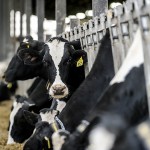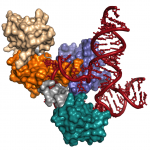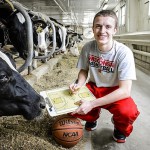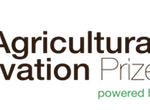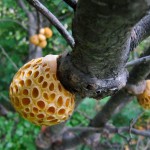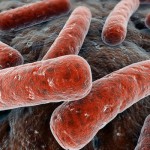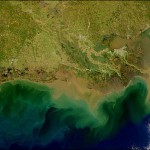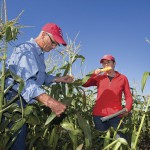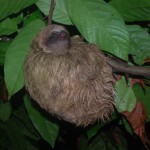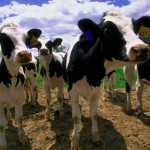Tag College of Agricultural and Life Sciences
Scientists capture most detailed images yet of tiny cellular machines
A grandfather clock is, on its surface, a simple yet elegant machine. Tall and stately, its job is to steadily tick away the time. But a look inside reveals a much more intricate dance of parts, from precisely-fitted gears to cable-embraced pulleys and bobbing levers.
Of Badgers and bovines: Jordan Ebert pursues both passions at UW
Like many University of Wisconsin–Madison students, Jordan Ebert found himself in Dallas this March, cheering on the Badgers in their Final Four matchup with the Kentucky Wildcats, adding to a list of memorable moments in his young undergraduate career.
Ride to Farm seeks cyclists, pledges for UW beginning farmer school
Dozens of cyclists will be riding through the rolling hills of Iowa and Sauk counties on Saturday, May 31 to support the next generation of dairy and livestock farmers.
UW-Madison’s Gourse elected to American Academy of Arts and Sciences
University of Wisconsin–Madison bacteriologist Richard L. Gourse is among leaders from academia, business, public affairs and the arts and humanities elected to membership in the American Academy of Arts and Sciences, it was announced today (Wednesday, April 23).
Student teams from across the nation compete for Agricultural Innovation Prize
The University of Wisconsin–Madison will host 30 teams of undergraduate and graduate students from across the country this week for the national Agricultural Innovation Prize.
Foxes among Badgers: A family of foxes makes its home on campus
There are foxes on campus. Big ones and little ones, a new family that started this spring.
Novel Open Source Seed Pledge aims to keep new vegetable and grain varieties free for all
This week, scientists, farmers and sustainable food systems advocates will gather on the University of Wisconsin–Madison campus to celebrate an unusual group of honored guests: 29 new varieties of broccoli, celery, kale, quinoa and other vegetables and grains that are being publicly released using a novel form of ownership agreement known as the Open Source Seed Pledge.
Scientists firm up origin of cold-adapted yeasts that make cold beer
As one of the most widely consumed and commercially important beverages on the planet, one would expect the experts to know everything there is to know about lager beer.
Six appointed to WARF professorships
Six members of the UW–Madison faculty have been appointed to Wisconsin Alumni Research Foundation named professorships in 2014.
In the lab, scientists coax E. coli to resist radiation damage
Capitalizing on the ability of an organism to evolve in response to punishment from a hostile environment, scientists have coaxed the model bacterium Escherichia coli to dramatically resist ionizing radiation and, in the process, reveal the genetic mechanisms that make the feat possible.
Excess nitrogen in water prompts March 28 summit
Concern about excess nitrogen getting into the state's waterways and drinking water is the impetus for a Nitrogen Science Summit March 28 on the University of Wisconsin–Madison campus.
What’s with sloths’ dangerous bathroom breaks? Maybe hunger
For the three-toed sloth, a trip to the restroom is no rest at all. It's a long, slow descent into mortal danger from the safety of home among the upper branches of the forest.
CALS researchers developing novel treatment for septic shock
By the time doctors diagnose septic shock, patients often are on a knife’s edge. At that point, for every hour that treatment is delayed, a person’s risk of death rises an alarming six percent.

